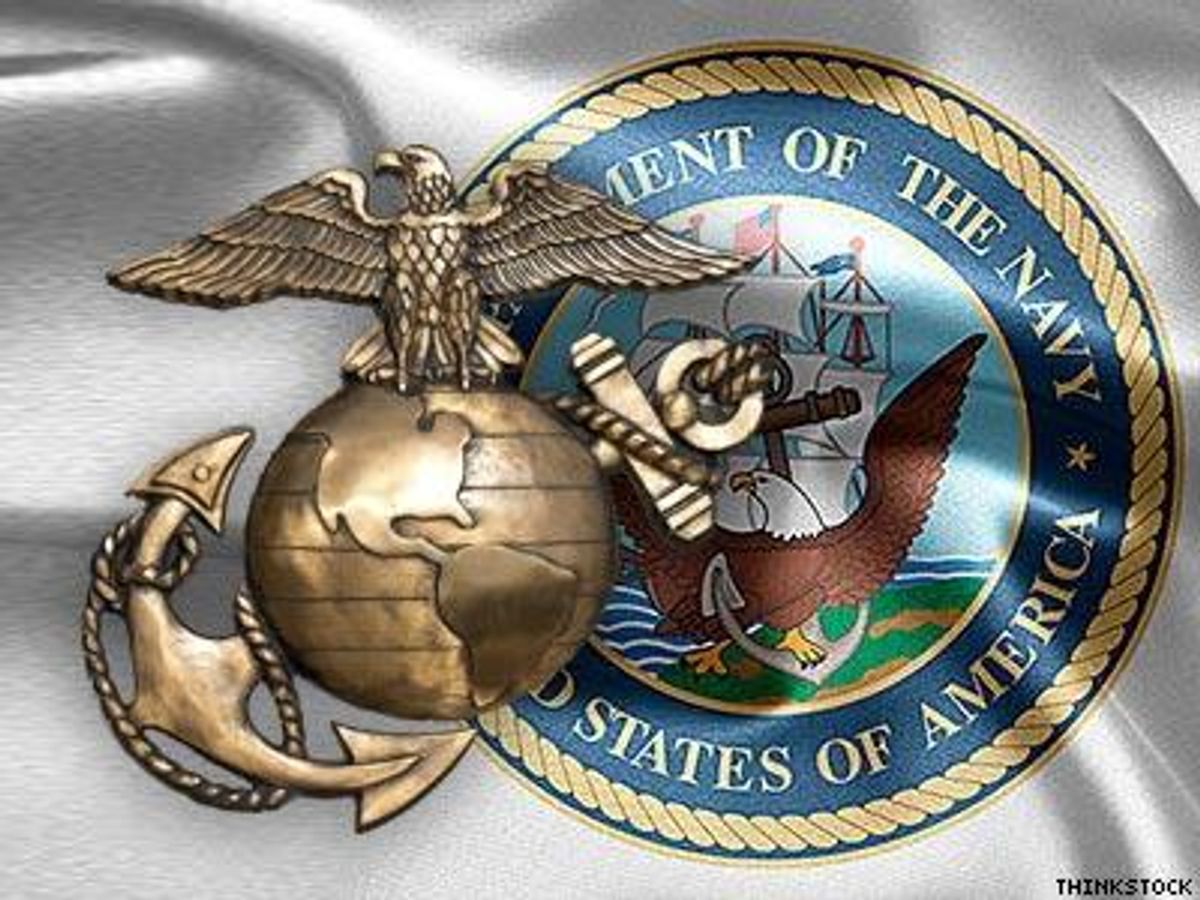Following similar moves by the U.S. Air Force and Army in recent months, the U.S. Navy and Marine Corps have elevated the level of the commander able to decide whether an active-duty service member should be discharged for being transgender.
While the change, which is effective immediately, does not rescind the military's long-standing ban on open military service by transgender Americans, it does decrease the likelihood that service members in each of these branches will be discharged solely for being transgender. Since the Army, Air Force, and now the Navy and Marines have elevated discharge decisions to Pentagon-level officials, advocates are not aware of any transgender service member being separated.
A memo from the secretary of the Navy obtained by The Advocate instructs the chief of naval operations and commandant of the Marine Corps to forward all decisions regarding the possible separation of transgender members of the Navy to the assistant secretary of the Navy.
"Effective immediately, separations initiated under the provisions of the reference for service members with a diagnosis or history of gender dysphoria, who identify themselves as transgender, or who have taken steps to externalize the condition, must be forwarded to the Assistant Secretary of the Navy (Manpower and Reserve Affairs) for decision," reads the memo, which is dated July 1.

The official who must now sign off on any separations of transgender sailors and Marines is Anne Davis, a Navy spokeswoman tells The Advocate.
Under a long-standing military regulation known as Department of Defense Instruction 6130.03, declaring a transgender identity or pursuing any type of gender-confirming clinical, medical, or surgical treatment is evidence of a "psychosexual condition" that makes a service member subject to discharge.
Advocates who want to see the outdated regulation changed -- which can be done without congressional involvement, by the secretary of Defense, the Pentagon, or the president -- point to growing, overwhelming scientific consensus that there is "no compelling medical reason" to continue the ban on open service by transgender Americans. They also point to the estimated 15,500 transgender Americans already serving in the military (including Advocate contributor and Army Cpl. Laila Villanueva) who are forced to hide their true selves, presenting as a gender with which they do not identify, in order to serve their country.
"We are pleased to see that the Navy and Marine Corps are now aligned with the Army and Air Force in elevating transgender discharge authority to the Pentagon," LGBT service member advocacy group SPARTA tells The Advocate today via email. "The next step is a Department-wide policy update that allows transgender service members to serve openly and with the same dignity as other service members. Commanders at all levels need common-sense solutions that reflect current medical practice; this is long overdue."
Earlier this year, the Navy's top enlisted soldier, Master Chief Petty Officer of the Navy Mike Stevens, told the Navy Times that he would support open service by transgender Americans if the blanket ban were lifted. His remarks echo comments by Air Force secretary Deborah James last December, when she told USA Today that she believes the policy should be reviewed and ultimately rescinded.
Army Sgt. Shane Ortega, a transgender man and helicopter crew chief who recently shared his experience with The Advocate, explained the impact of the memo in an email to this publication:
"For transgender Navy personnel it means that ... they can potentially come out [without] being dismissed from service at the unit commander level. Separations would have to come from the department headquarters. This gives these service members a small breath of air -- but it doesn't mean that all issues have been solved for transgender inclusion. [Issues] such as uniforms, fitness testing, medical care and [equal employment] protections are still left remaining."
Secretary of Defense Ashton Carter, who took office in February, has said he is "open-minded" about reviewing the policy, which has not been updated since it was written in the 1970s. But despite pressure from activists within the ranks and in Washington, the Pentagon has confirmed that no specific review of the transgender ban is currently under way.




















































































